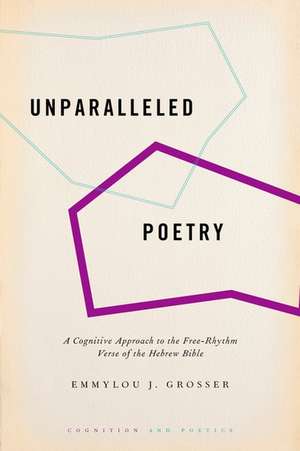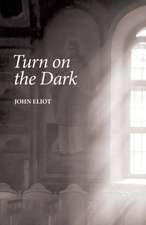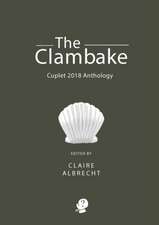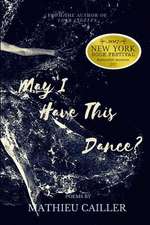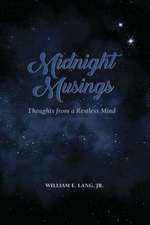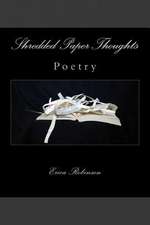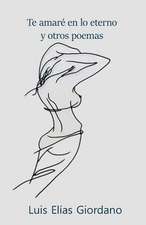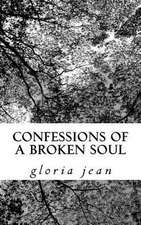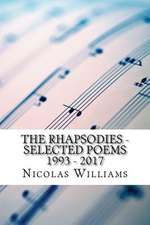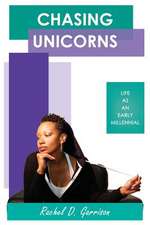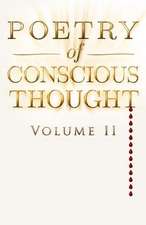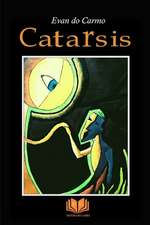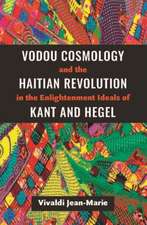Unparalleled Poetry: A Cognitive Approach to the Free-Rhythm Verse of the Hebrew Bible: COGNITION AND POETICS SERIES
Autor Emmylou J. Grosseren Limba Engleză Hardback – 20 dec 2023
Preț: 446.83 lei
Preț vechi: 614.39 lei
-27% Nou
Puncte Express: 670
Preț estimativ în valută:
85.53€ • 92.93$ • 71.89£
85.53€ • 92.93$ • 71.89£
Carte disponibilă
Livrare economică 18-24 martie
Preluare comenzi: 021 569.72.76
Specificații
ISBN-13: 9780190902360
ISBN-10: 0190902361
Pagini: 360
Ilustrații: 3 b/w photographs; 20 line drawings
Dimensiuni: 157 x 157 x 43 mm
Greutate: 0.68 kg
Editura: Oxford University Press
Colecția OUP USA
Seria COGNITION AND POETICS SERIES
Locul publicării:New York, United States
ISBN-10: 0190902361
Pagini: 360
Ilustrații: 3 b/w photographs; 20 line drawings
Dimensiuni: 157 x 157 x 43 mm
Greutate: 0.68 kg
Editura: Oxford University Press
Colecția OUP USA
Seria COGNITION AND POETICS SERIES
Locul publicării:New York, United States
Recenzii
What are the distinctive features of a biblical Hebrew poem? In the centuries since Robert Lowth's pioneering work, scholars have explored every conceivable aspect of parallelism. Others have tried to describe the essence of Hebrew poetry through various counted constraints, whether they be stresses, or syllables, or grammatical slots in a clause. Still others stress the importance of the cantillation marks and allow them to be the guide to interpreting biblical poetry. But for all that effort, it still seems that we are missing something fundamental. In this book, Emmylou Grosser provides a new and groundbreaking model for describing the genius of Hebrew poetry and for interpreting individual texts. The cognitive poetics approach she advocates is a major insight and provides a powerful tool for the analysis of the poems of the Bible."
This book offers a strikingly new view of the basic structure of biblical verse-the line. Calling upon cognitive poetics, Grosser finds that the line is not a fixed entity but emerges in relation to groups of lines through the reader's/listener's perception of the poem. Structure and meaning are dynamically intertwined. This marvelously lucid, thorough, and well-informed discussion takes our understanding of biblical poetry to a deeper level.
Unparalleled Poetry is a striking and revelatory application of basic cognitive principles to poetics. It should change not only how we think about Hebrew Bible poetry but how we think about free verse and about the category "poetry" as such.
Ancient Hebrew poetry-like most pre-modern poetry-was primarily experienced aurally rather than visually. And yet, the scholarly study of what makes Biblical Hebrew poetry "poetry" frequently treats the written visual text as its object, given that this is the form in which we now encounter this poetry. Grosser's employment of a cognitive approach to poetic lineation draws on Gestalt theory of perception and provides a valuable aural-based approach Hebrew poetry. This monograph will be helpful to everyone interested in examining the prosody and aesthetics of Biblical Hebrew poetry.
I consider Grosser's fascinating and thought-provoking book to rank among the most important contributions to the study of biblical poetry and poetics within the past two decades.
By directing our attention to the universals of perception, Grosser opens an important window onto the particulars of biblical poetry. The result is an impressive and perceptive study of the Bible's free-rhythm verse. The attentive reader will hear the line and its relation to the poem in a new way.
Emmylou Grosser's book is the first longed-for extensive study within the emerging field of cognitive versification studies. She takes care of a basic versification domain, Bible poetry, and launches the precondition that it must be understood out of its aurality and its gestalts. She rejects traditional parallelism as a regulating device and shows how structured line-groups shape the poetry.
E. J. Grosser in Unparalleled Poetry offers a powerful and provocative reconceptualization of biblical Hebrew poetic line structure from the perspective of cognitive poetics. Eschewing Lowth's famous idea of parallelism and pointing instead to his less appreciated observation of 'a certain conformation of the sentences,' Grosser leverages above all the work of Reuven Tsur in his exploration of how cognitive processes constrain and shape the language and form of verbal art. Unparalleled Poetry adds sophistication and precision to the perception of biblical poetic lines and how those lines are grouped into couplets, triplets, stanzas, and whole poems. But the book's ultimate payoff will be the new readings of biblical poems it inspires.
Grosser's model remedies the previous ill-treatment of reducing poetic lines to any given structure or restricted linguistic aspect. An unparalleled approach indeed.
This book offers a strikingly new view of the basic structure of biblical verse-the line. Calling upon cognitive poetics, Grosser finds that the line is not a fixed entity but emerges in relation to groups of lines through the reader's/listener's perception of the poem. Structure and meaning are dynamically intertwined. This marvelously lucid, thorough, and well-informed discussion takes our understanding of biblical poetry to a deeper level.
Unparalleled Poetry is a striking and revelatory application of basic cognitive principles to poetics. It should change not only how we think about Hebrew Bible poetry but how we think about free verse and about the category "poetry" as such.
Ancient Hebrew poetry-like most pre-modern poetry-was primarily experienced aurally rather than visually. And yet, the scholarly study of what makes Biblical Hebrew poetry "poetry" frequently treats the written visual text as its object, given that this is the form in which we now encounter this poetry. Grosser's employment of a cognitive approach to poetic lineation draws on Gestalt theory of perception and provides a valuable aural-based approach Hebrew poetry. This monograph will be helpful to everyone interested in examining the prosody and aesthetics of Biblical Hebrew poetry.
I consider Grosser's fascinating and thought-provoking book to rank among the most important contributions to the study of biblical poetry and poetics within the past two decades.
By directing our attention to the universals of perception, Grosser opens an important window onto the particulars of biblical poetry. The result is an impressive and perceptive study of the Bible's free-rhythm verse. The attentive reader will hear the line and its relation to the poem in a new way.
Emmylou Grosser's book is the first longed-for extensive study within the emerging field of cognitive versification studies. She takes care of a basic versification domain, Bible poetry, and launches the precondition that it must be understood out of its aurality and its gestalts. She rejects traditional parallelism as a regulating device and shows how structured line-groups shape the poetry.
E. J. Grosser in Unparalleled Poetry offers a powerful and provocative reconceptualization of biblical Hebrew poetic line structure from the perspective of cognitive poetics. Eschewing Lowth's famous idea of parallelism and pointing instead to his less appreciated observation of 'a certain conformation of the sentences,' Grosser leverages above all the work of Reuven Tsur in his exploration of how cognitive processes constrain and shape the language and form of verbal art. Unparalleled Poetry adds sophistication and precision to the perception of biblical poetic lines and how those lines are grouped into couplets, triplets, stanzas, and whole poems. But the book's ultimate payoff will be the new readings of biblical poems it inspires.
Grosser's model remedies the previous ill-treatment of reducing poetic lines to any given structure or restricted linguistic aspect. An unparalleled approach indeed.
Notă biografică
Emmylou J. Grosser, PhD, is a Research Fellow for the Department of Hebrew, University of the Free State, Bloemfontein. Her research interests include the language and literature of the Hebrew Bible and interdisciplinary approaches to biblical poetry.
